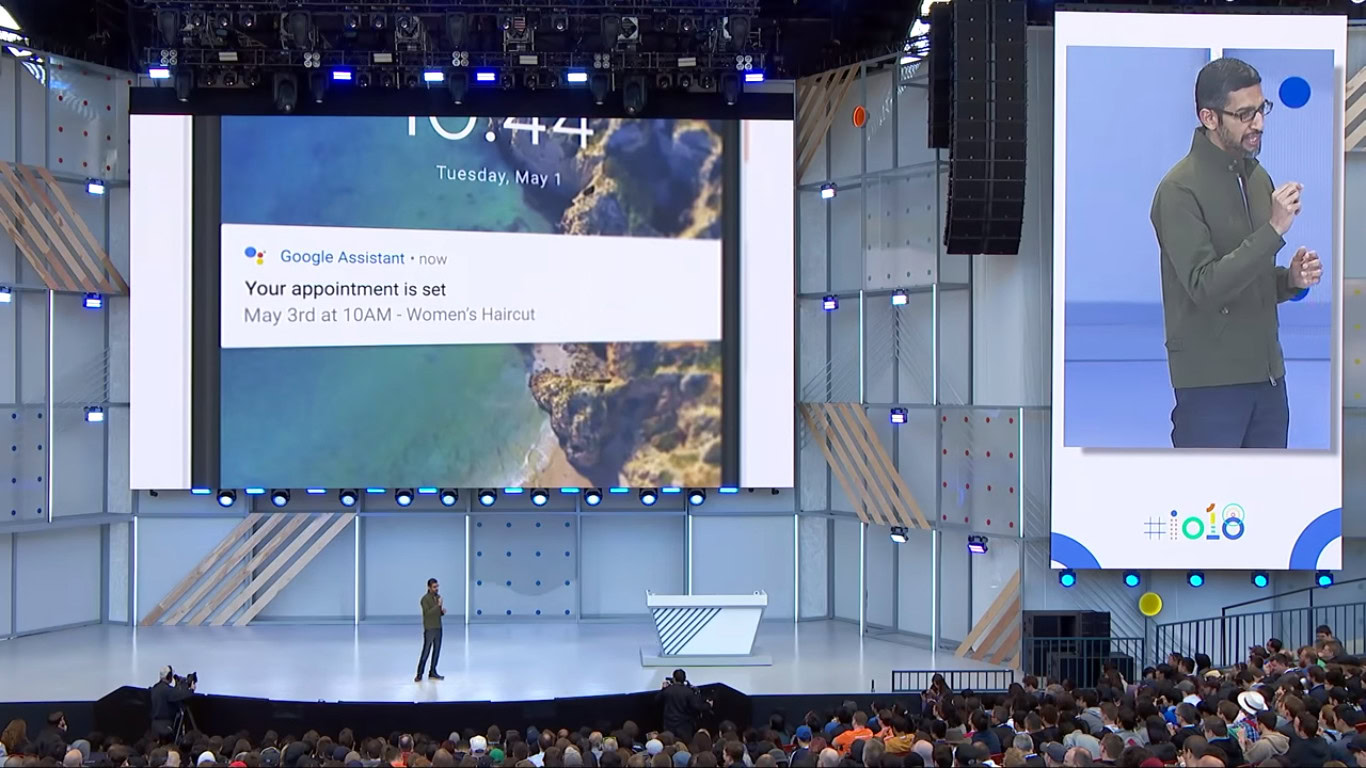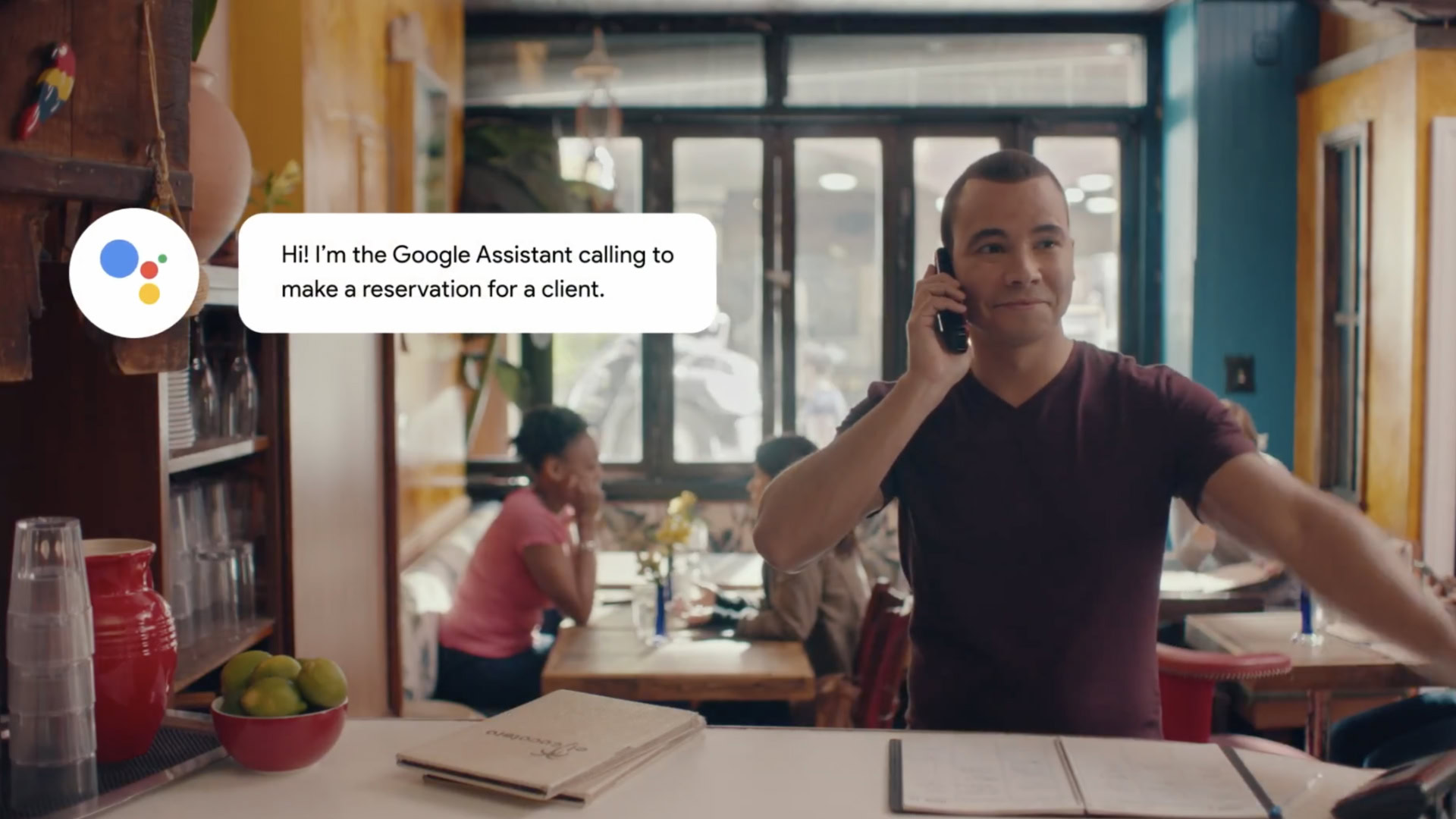Affiliate links on Android Authority may earn us a commission. Learn more.
Google Duplex might be your next scam caller (Updated)
Published onJuly 6, 2018

Update (07/06): Google has poured cold water on claims that it is actively looking to hawk its incredible/terrifying Duplex technology to call center companies or any other businesses. For the time being, at least…
In a statement to Engadget, a Google spokesperson said:
“We’re currently focused on consumer use cases for the Duplex technology and we aren’t testing Duplex with any enterprise clients. As we shared last week, Duplex is designed to operate in very specific use cases, and currently we’re focused on testing with restaurant reservations, hair salon booking, and holiday hours with a limited set of trusted testers. It’s important that we get the experience right and we’re taking a slow and measured approach as we incorporate learnings and feedback from our tests.”
While you won’t be hearing Duplex on the other end of a customer services phone line any time soon, it’s worth noting that Google isn’t ruling out working with enterprise clients in the future, only that it is perfecting the system for consumers first.
Considering how ambitious, controversial, and potentially game-changing the tech could be, Google is probably on the right track by teaching Duplex to walk before it can run.
Original post (07/05): At Google I/O 2018, Google presented a new technology called Google Duplex, which uses Google Assistant’s voice AI to make automated phone calls that sound eerily human. The presentation was both incredible and ethically concerning.
Now, according to an anonymous source speaking with The Information, it looks like Google is in talks with call center companies about bringing Google Duplex to your future help desk, tech support, and telemarketing calls.
And yes, that probably means it’s coming to your scam calls as well.

One potential customer – an unnamed “large insurance company” – is looking at ways in which Duplex could take over the simple and repetitive customer calls it receives daily. In theory, Duplex would handle the call until the customer is satisfied, or until it gets too complicated for Duplex to handle, which would then push the call to a human representative.
However, the anonymous source said that the large insurance company is taking the ethical concerns that Duplex presents into consideration, which is slowing work on the project.
While it’s terrific that this company and others are stopping for a second to think about the ethics surrounding people speaking to robots that they would potentially think are human, it’s a safe bet that other, less-scrupulous companies are thinking about how Duplex will make their scams more effective.
It's not a question of 'if' Duplex will make a scam call, but a matter of 'when'.
Most people are adept at blocking scam calls or understanding when a call they accidentally answer is a scam. However, an estimated one in every 10 American adults loses money each year to scam calls, at an average of $430 per call. That’s an annual estimated total of $9.5 billion. With that much money on the table, you can bet your bottom dollar that something like Duplex is going to end up making a scam call at some point in the future.
Since Google’s initial presentation of Duplex caused quite the firestorm from people concerned about what it could mean for human trickery, hopefully, Google is working hard to prevent companies from misusing the technology. However, with Google’s recent issues surrounding third-parties reading your Gmail messages and its habit of pushing products in a half-baked form, it’s possible Google won’t be as diligent as we would like.

Duplex also brings up concerns about human jobs: if Duplex gets widely adopted throughout the call center industry, it undoubtedly will cause thousands (or even millions) of people around the world to be out of work suddenly.
As of today, the only thing we officially know about Google’s intentions when it comes to keeping Duplex as ethical as possible is that callers will be notified that they are speaking to an automated system and also that the call is recorded. However, until we see tangible written policy on the matter, it’s not at all clear how difficult (or how easy) it would be for companies to bypass those restrictions.
In other words, this is unknown territory and requires a lot of scrutiny before becoming the norm.
NEXT: Google Duplex is still creepy, but it’s ready for the real world